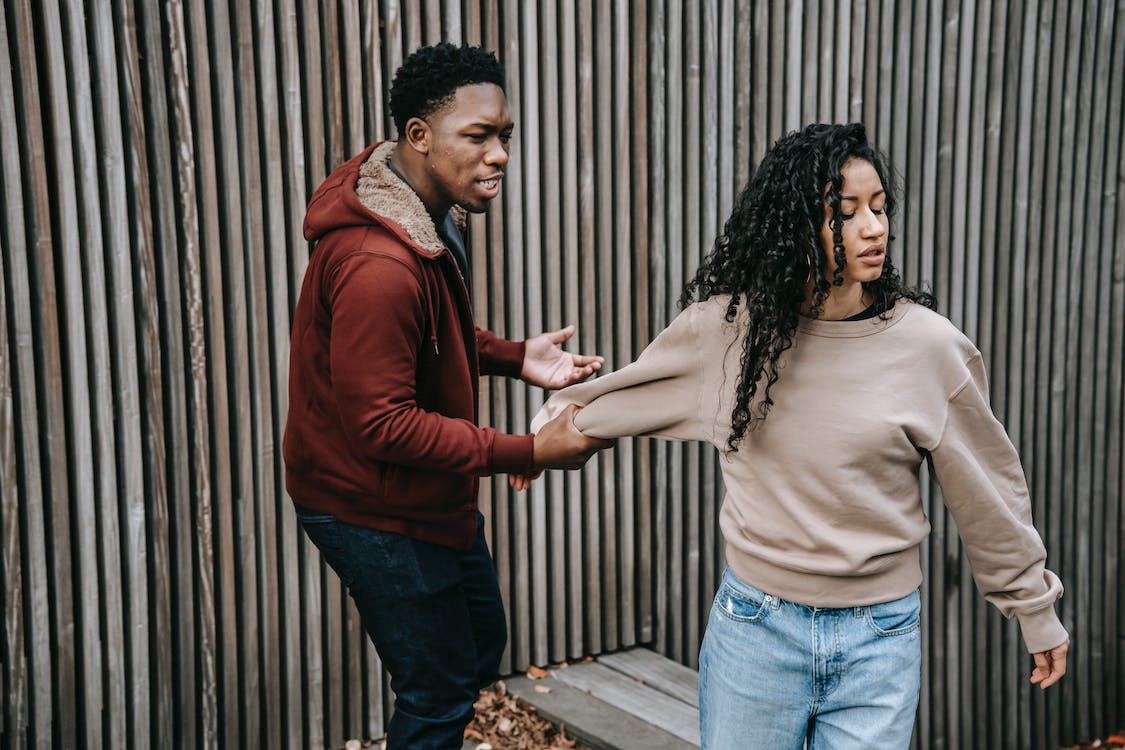 |
| Credit: Pexels |
It is important to know
the difference between emotional abuse and domestic violence if you want to
know how unhealthy relationships work.
Even though both can
be very bad for the person who gets them, they show up in different ways and
need different kinds of help.
In this piece, we'll
look at emotional abuse and domestic violence from an analytical point of view.
We'll talk about the different ways emotional abuse can show up, how to spot
the signs of domestic violence, and the main differences between the two.
Domestic Violence Defined
On the other hand,
"domestic violence" is a wider term that includes many different
kinds of abuse, such as physical, emotional, sexual, and financial abuse.
It happens in close
relationships, like marriage or living together. Domestic violence is often a
cycle of power and control, with the abuser using fear, threats, and violence
to gain control.
Domestic abuse can
hurt people in many different ways, both physically and mentally.
10 Ways Emotional Abuse Manifests
1. Gaslighting: People who hurt others emotionally change the
truth and make their victims question what they think is real.
Constant Criticism:
They are always putting down
and criticizing their victims, which hurts their self-esteem.
Isolation: Emotional abusers keep their victims from their
friends and family, which makes them dependent on the attacker.
4. Withholding
Affection: As a way to control
and punish, they don't show love or emotional support.
5. Manipulation: Emotional abusers use their victims' feelings
and situations to keep power over them.
6. Emotional
Rollercoaster: Victims go
through random highs and lows in their emotions, which makes them feel confused
and unsafe.
7.Shifting the
blame: People who use
emotional abuse put the blame for their actions and feelings on the people they
hurt.
8. Withholding
Emotions: They use withholding
emotions to control and scare their prey.
9. Humiliation: People who use emotional abuse hurt their
victims' self-esteem by making them feel bad about themselves.
10. Emotional
Neglect: They don't meet the
emotional needs of their victims, which makes them feel unwanted and unworthy.
Difference Between Emotional Abuse and Domestic Violence
The main difference
between emotional abuse and domestic violence in the home is the extent and
type of abuse in each case.
Emotional abuse is a
habit of using someone's feelings and sense of self-worth against them. It can
happen in many different kinds of relationships.
On the other hand,
domestic violence is any kind of physical, mental, sexual, or financial abuse
in a close relationship.
Effects of Having
Emotionally Abusive and Violent Individuals
Being in a
relationship with someone who is emotional abusive and violent can be very bad
for the victim.
They may have low self-esteem, anxiety, sadness, or even post-traumatic stress disorder (PTSD).
Domestic violence
victims may also get hurt physically and have health problems that last for a
long time. Healing from these kinds of experiences often takes expert help and
a strong network of friends and family.
Reasons for Domestic Violence and Emotional Abuse
Domestic violence and emotional
abuse have a lot of different causes. Abusers may have been abused themselves
or have trauma and mental problems that they haven't dealt with.
Abusive behaviour can
also be caused by things like drug use, imbalances of power, and cultural
values.
List Five Ways to
Get Help for Emotional Abuse and Domestic Violence
1. Hotlines and
Support Groups: Call domestic
violence and emotional abuse hotlines and support groups in your area.
2. Therapy or
counseling: Get help from a
professional therapist or counselor who has dealt with abuse and stress before.
3. Legal Help: Talk to a lawyer to learn about your legal
rights and protection order choices.
4. Plan for safety:
Make a safety plan to protect
yourself from more harm if things get worse.
5. Lean on helpful
friends and family: Surround
yourself with friends and family who care about you and can help you in both
emotional and practical ways.
How Can I Change an Emotionally Abusive and Violent Parent?
Trying to change a
parent who is emotionally abusive and violent is hard. It takes open
conversation, empathy, and a willingness on the part of the parent to see that
they are doing something wrong.
Family therapy can
help get to the bottom of problems and teach better ways to talk to each other.
Frequently Asked Questions
What is emotional
abuse?
Emotional abuse is a habit of using someone's
feelings, sense of self-worth, and self-esteem to control them.
How can I cope with emotional abuse?
It can be hard to deal
with emotional abuse. Talk to friends, family, or a therapist who can help you
understand and move forward.
What are the signs of domestic violence?
Physical abuse, sexual
abuse, control over money, threats, and being cut off from friends and family
are all signs of domestic violence.
Can an emotionally abusive person change?
Change is possible,
but the violent person has to admit what they are doing and get help from a
professional.
How can I protect myself from domestic violence?
To protect yourself
from domestic abuse, you can make a safety plan, talk to a lawyer, and call a
support hotline. Having a network of people who will help you can also be
helpful.




